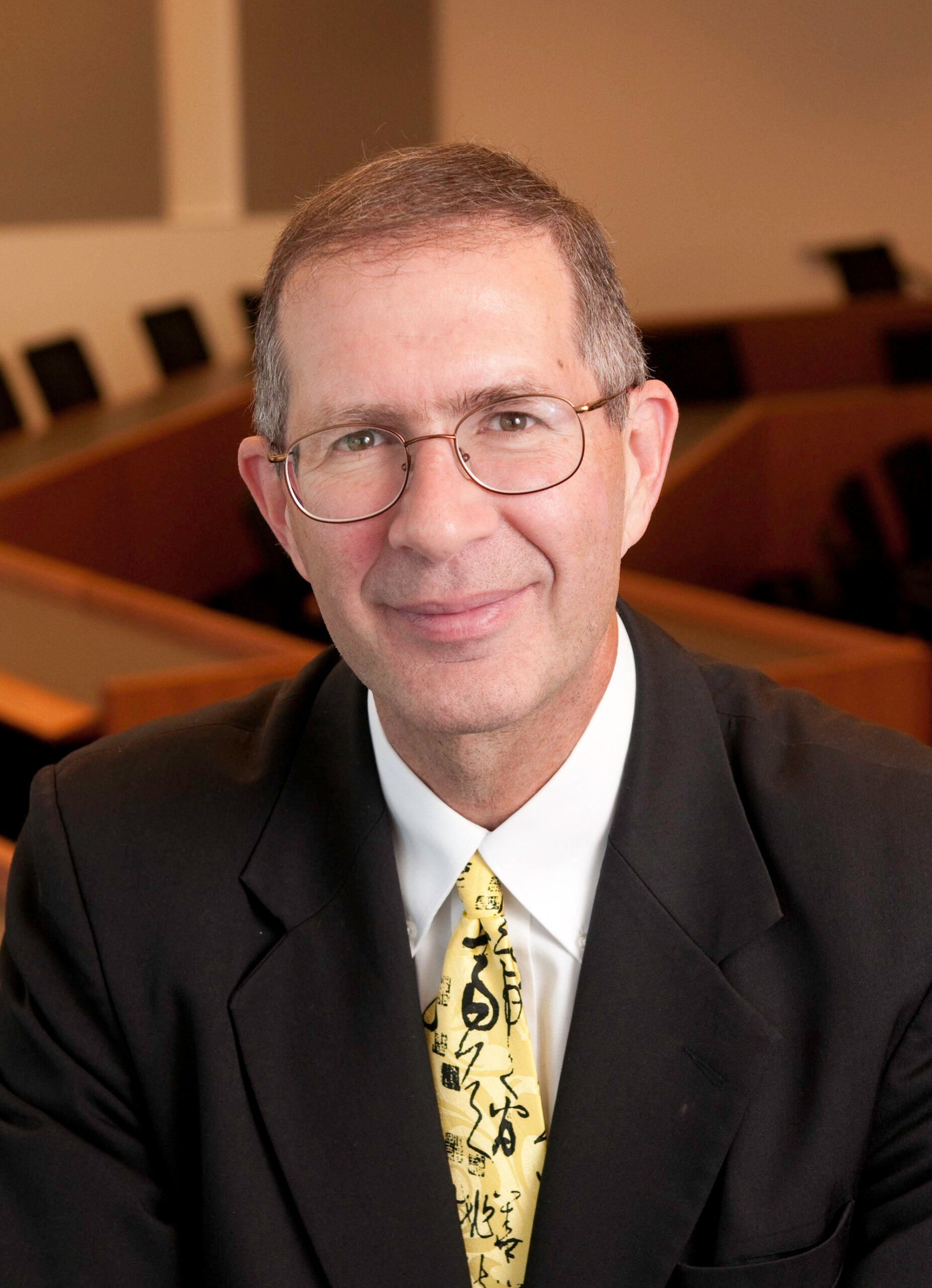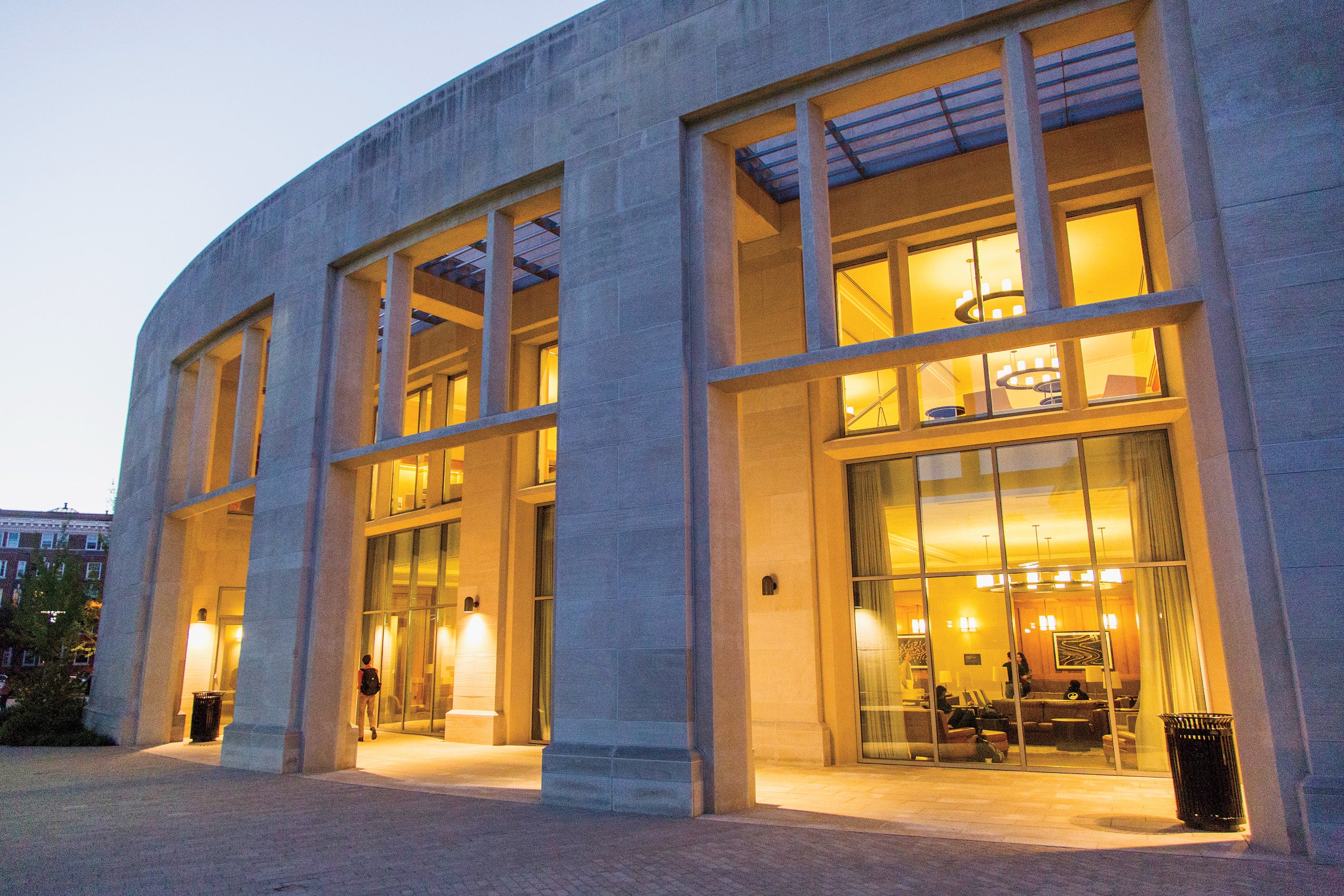In December, Amy Feinberg ’18 became the second Federal Tax Clinic student to argue an appeal in a federal circuit court since the Clinic opened at Legal Services Center of Harvard Law School in 2015.
For Feinberg, appearing before the U.S. Court of Appeals for the Fourth Circuit was also the first time she had ever been in a courtroom. Second on the docket that day, she had to wait nearly an hour to put forward her client’s case, even though Feinberg was “hyped and ready to go” almost since she arrived in Richmond, VA., the night before.
Clinical Professor of Law Keith Fogg, who directs the Federal Tax Clinic, notes that many attorneys can be practicing for 10 or more years before they get the kind of experience that Feinberg, and her predecessor Jeff Zink ’17, have gotten while enrolled in the Clinic.
Other students in the Clinic have had the opportunity to file amicus briefs and help prepare appeals for court. All students work directly with clients and carry a docket of cases. And almost all have the opportunity to negotiate directly with the IRS and state tax authorities – experiences that many lawyers seldom get.
Tax Clinic’s Strategic Challenge to IRS Interpretation of Filing Deadline
“The opportunity to appear in the circuit courts, file amicus briefs, and to promote law change through policy advocacy if necessary is an outgrowth of a strategy that the Federal Tax Clinic developed to assist taxpayers, many of whom are low income, who have missed the deadline to file a petition in the United States Tax Court by one or more days because of misleading information or notices sent by the IRS, “ Fogg says.

In a number of cases that the Tax Clinic has taken to the appellate level, the Tax Court dismissed the case for lack of jurisdiction. The Tax Clinic has argued that the Court does have jurisdiction based on a series of Supreme Court cases over the past dozen years.
The Tax Clinic’s position is that these individuals had sufficiently good reasons for missing the deadline — and that the Supreme Court has given lower courts the leeway through the proper interpretation of jurisdiction to allow taxpayers to overcome procedural missteps where good cause exists. Cases in these circumstances should be allowed to move forward and be judged based on the substance of their tax arguments, Tax Clinic lawyers and students argue — rather than being tossed out on a technicality.
At root, these cases involve the question of whether certain IRS code provisions containing filing deadlines are jurisdictional in nature or whether the code provisions are non-jurisdictional and hence subject to what lawyers call the doctrine of equitable tolling.
Getting Up to Speed
Feinberg began in the Tax Clinic in the Fall, and briefs for the case she would argue — Cunningham v Commissioner — had been written over the summer by other law students in collaboration with Fogg and Tax Clinic volunteer Carl Smith ’81. Smith deserves the credit for developing the overall strategy to challenge the IRS interpretation of filing deadlines, and the students who have worked on the briefs and oral arguments have continued to hone the basic argument, Fogg says.
Even if we don’t win in the courts, we hope to win the issue by bringing to light the inequities that can prevent taxpayers, usually low income taxpayers, from having their day in court because of the obstacles placed in front of them by the IRS or other sources,” says Fogg.
Feinberg’s tasks over the term included talking with Smith and Fogg to better understand the legal arguments, reading the case law and the briefs, mastering the arguments put forth by others, and participating in three moot court appearances in which she was grilled on the fine points of the applicable cases and statutes.
Feinberg accomplished her work on behalf of Ms. Cunningham while simultaneously handling the cases of five other Tax Clinic clients and working on an amicus brief in another case.
The Cunningham case involves Internal Revenue Code (IRC) 6330, which, like IRC 6015, was added to the Code in 1998. It is the first case on the jurisdiction of IRC 6330 to be argued before any circuit court. Section 6330 gives a taxpayer 30 days to petition the Tax Court following a determination that the IRS can levy upon their property. The determination letter that the IRS sends to taxpayers says that you have 30 days to petition the Tax Court and that the 30 days starts on the day after the date of the letter. Ms. Cunningham interpreted the letter in a way that caused her to file her Tax Court petition on the 31st day after the date of the notice.
Moots Key
Feinberg says going through the moot process with attorneys from both the Legal Services Center of Harvard Law School and from campus-based clinics was key to her preparation. So too was being prepped for the moots by her fellow law students.
“I wasn’t surprised by the questions the judges asked that day,” says Feinberg. “Perhaps by which questions were emphasized, but overall I felt well prepared.”
“The process of arguing a case goes a lot faster when you are the one arguing the case than when you are listening to other attorneys,” Feinberg admits.
Feinberg, who serves as treasurer of the Women’s Law Association at HLS, also noted that almost everyone involved in the case she was arguing, including two of the three judges and the counsel representing the IRS, were women.
(You can listen to Feinberg’s argument here).
90 Days Versus Three Months
Last Spring Jeff Zink ’17 argued before the Second Circuit in the case of Matuszak v. Commissioner. (You can hear his argument here and read more about it here.) Zink answered questions from a three-judge panel, and opposing counsel in that case was also an experienced government tax attorney. Zink at the time characterized the entire experience as “nerve-wracking,” yet an “incredible learning opportunity.” Currently clerking for the First Circuit Court of Appeals in Boston, Zink plans to pursue a career in tax law.
In the case Zink argued, the taxpayer sought innocent spouse relief from the IRS pursuant to IRC 6015. The IRS denied her request and she administratively appealed. The Appeals Officer who denied her appeal told her that she had three months to file a petition in the Tax Court. She confirmed with the Appeals Officer the date that was three months from the date of the denial.
However, the statute actually gives her 90 days, not three months. The determination letter was sent to her on Oct. 7. Under the statute she had until Jan. 5 to file the petition in the Tax Court, but the Appeals Officer told her she had until Jan. 7. She filed on Jan. 6. The Second Circuit, interpreting the language of IRC 6015, sustained the decision of the Tax Court and held that the statutory provision granting jurisdiction to the Tax Court contained a clear statement that the time period for filing the petition was jurisdictional. The Clinic has since filed an offer of compromise with the IRS and Fogg believes a favorable settlement for Ms. Matuszak will be reached.
Multi-Circuit Court Strategy
The Tax Clinic began making these types of jurisdictional arguments the first semester it opened in the Fall of 2015. Amanda Klopp ’16 filed an amicus brief in a case in which the petition arrived late to the Tax Court because the Court was closed due to snow. She blogged about the case here, and the blog contains a link to the amicus brief which the Tax Clinic filed on behalf of the taxpayer whose case the IRS sought to dismiss because of the snow closure.
Since that time, in addition to the cases argued by Zink and Feinberg, the Tax Clinic has filed an amicus brief in the Ninth Circuit, argued a case in the Third Circuit, and recently lost an appeal in the Tenth Circuit.
“Our goal is to win one of these cases and create a conflict among the circuits regarding the Tax Court’s jurisdiction that could lead all the way to the Supreme Court,” says Fogg, who is himself a former attorney at the IRS and a nationally recognized tax expert
Legislative Changes Another Avenue
“Even if we don’t win in the courts, we hope to win the issue by bringing to light the inequities that can prevent taxpayers, usually low income taxpayers, from having their day in court because of the obstacles placed in front of them by the IRS or other sources,” says Fogg.
The National Taxpayer Advocate Nina Olson, who serves as the voice of the taxpayer within the IRS and before Congress, has already taken notice of the issue and has indicated that she will include this issue in her annual report to Congress recommending legislative changes.
Experiences Transcend Tax Law for Students
In addition to providing representation for low-income clients who would otherwise have abandoned their attempt for a hearing before the Tax Court, these cases provide opportunities for students in the Tax Clinic to write appellate briefs and to present oral arguments before the Circuit courts.
Client interaction, and practicing procedural and administrative law are also major benefits of the Tax Clinic course, says Feinberg, who will be clerking for the U.S. Court of Appeals for the Federal Circuit after she graduates, and hopes to pursue a career in tax law. “Many students in the Clinic negotiate directly with the IRS,” Feinberg says. “For me, in addition to arguing in appellate court, I worked directly with clients on five other cases, and also researched and wrote an amicus brief on another case.”
For Tax Clinic Director Fogg, helping students learn the art and science of lawyering while opening the doors of the Tax Court to taxpayers.
“Our goal is to use litigation and other forms of advocacy to enable taxpayers to get past procedural missteps and on to the substance of their tax arguments” Fogg says. “To me, that will be a big win — for both our clients and our students.”
